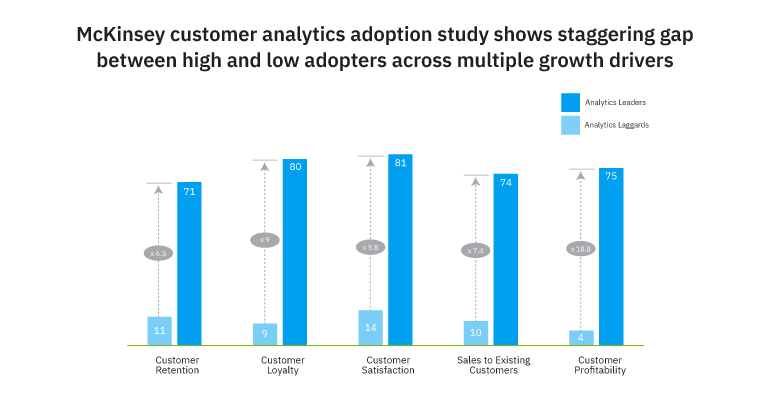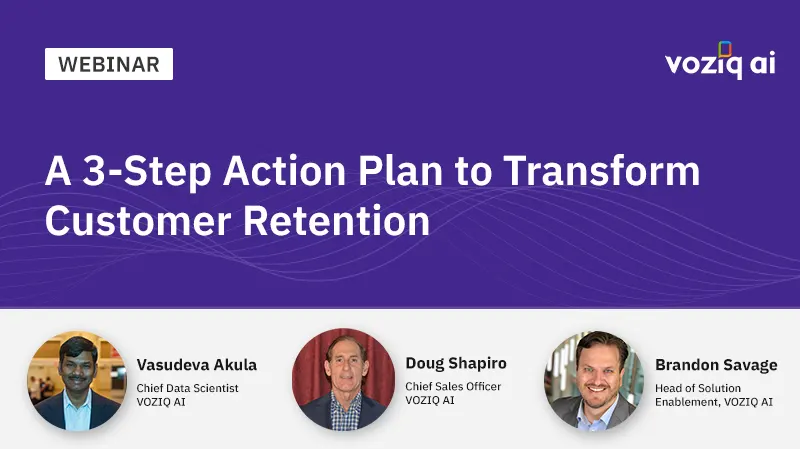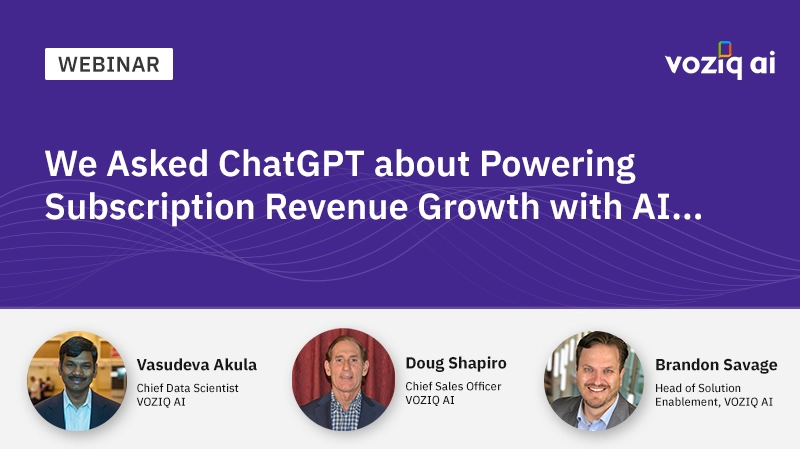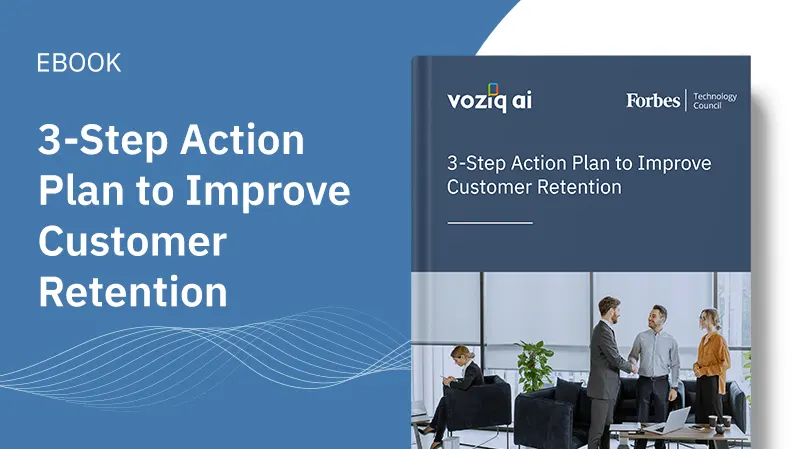Best Practices for Boosting Subscription Revenue Growth and Improving Profitability

Best Practices for Boosting Subscription Revenue Growth and Improving Profitability
As indicated above, the difference between leaders and laggards is a whopping 18.8X on customer profitability, 6.5X on customer retention, and 9X on customer loyalty.
According to another McKinsey study
organizations currently implementing data-driven approaches—ranging from predictive systems to AI-driven automation—are doing sporadically across their operations, resulting in missed opportunities and inefficiencies.
At VOZIQ AI, we’ve enabled top-tier recurring revenue businesses to unlock tens of millions of dollars in customer lifetime value through customer analytics by comprehending its profound impact on organizational growth.
Drawing from our track record of delivering $750 million in CLV to leading recurring revenue companies across North America, we assert that a granular understanding of the customer base followed by the generation of actionable intelligence to drive proactive and personalized initiatives for each customer can serve as a pivotal differentiator in a company’s growth trajectory.
Implementing AI-powered customer analytics the right way can answer these critical questions for each customer –
- Is this customer happy?
- Is this customer at risk?
- Is the customer from a competitive geography?
- What could be the best offer for this customer?
- What is the driving risk for this customer?
1. Utilize multiple predictive models to predict customer behavior and drive personalized actions accurately
Over the years, we have seen that businesses typically rely on a single model to predict key KPIs like churn risk.
Why is the Single-Model approach ineffective?
- While organizations may identify high-risk customers, the model output doesn’t elucidate why a particular customer intends to cancel.
- A single model fails to discern which at-risk customers hold greater value.
- Marketers will lack insight into the time left before a predicted high-risk customer will cancel.
- It will only predict the risk status of active customers and won’t consider the win-back chances of recently canceled customers.
Predictive analytics should progress beyond merely pinpointing who might cancel to understanding nuanced details such as the reasons for cancellation, the timing of cancellations, customer value, retention strategies, effective offers, and win-back opportunities.
So, the optimal approach to extensively predicting customer behavior is to have multiple predictive models, each predicting different dimensions of customer behavior. These predictions can then be used to automatically place every customer into a specific micro-segment, which is defined based on CLV potential and the target use case. These customer microsegments form the basis of personalized, large-scale actions.
2. Integrate predictions at various customer touchpoints to proactively address their needs
The frontline staff, including contact center agents, field service professionals, technicians, and service representatives, play a pivotal role in any enterprise as they serve as the initial point of contact with customers. Organizations must equip frontline agents with the necessary knowledge and resources to promptly address customer needs while minimizing time on call.
So in this second shift, the focus would be majorly to integrate the predictions with CRM, marketing, service and IVR systems to AI-enable millions of customer touches across various channels.
This helps empower frontline agents with prescriptive guidance about risk or opportunities, best offers, and profitable actions, empowers marketing teams to run profitable campaigns, and feeds CLV opportunities to field services to drive consultative selling to enhance customer value and business revenue.
3. Start leveraging predictions in contact centers to accelerate revenue opportunities
We consistently advise our clients to initiate transformation within the contact center as a strategic starting point before expanding into other channels.
Call centers present plenty of opportunities to increase the organization’s profits by retaining at-risk customers, improving customer experience, encouraging customer spending, and identifying upgrades, upselling, and cross-selling opportunities.
By leveraging the predictions and microsegments from shift 1, organizations can turn contact center agents into growth experts by empowering them with real-time access to the calling customer’s profile—including their subscription plan, concerns, pain points, etc.—to customize the conversation and foster better engagement.
Additional possibilities:
- Display personalized and profitable offers for every caller
- Display profitability of each offer at the customer level and reduce agent-introduced variance
- Feed both offers accept and decline outcomes back into ML models for continuous improvement in accuracy
In essence, these three transformative practices, powered by customer analytics, can revolutionize how businesses engage with their customers.
VOZIQ AI’s partnership with Brinks Home, a prominent Home Security company, resulted in the realization of $100 million in customer lifetime value for Brinks Home through implementing these strategies. To delve deeper into how these shifts can drive significant value for your organization, we invite you to hear directly from our solution experts in our insightful webinar.







